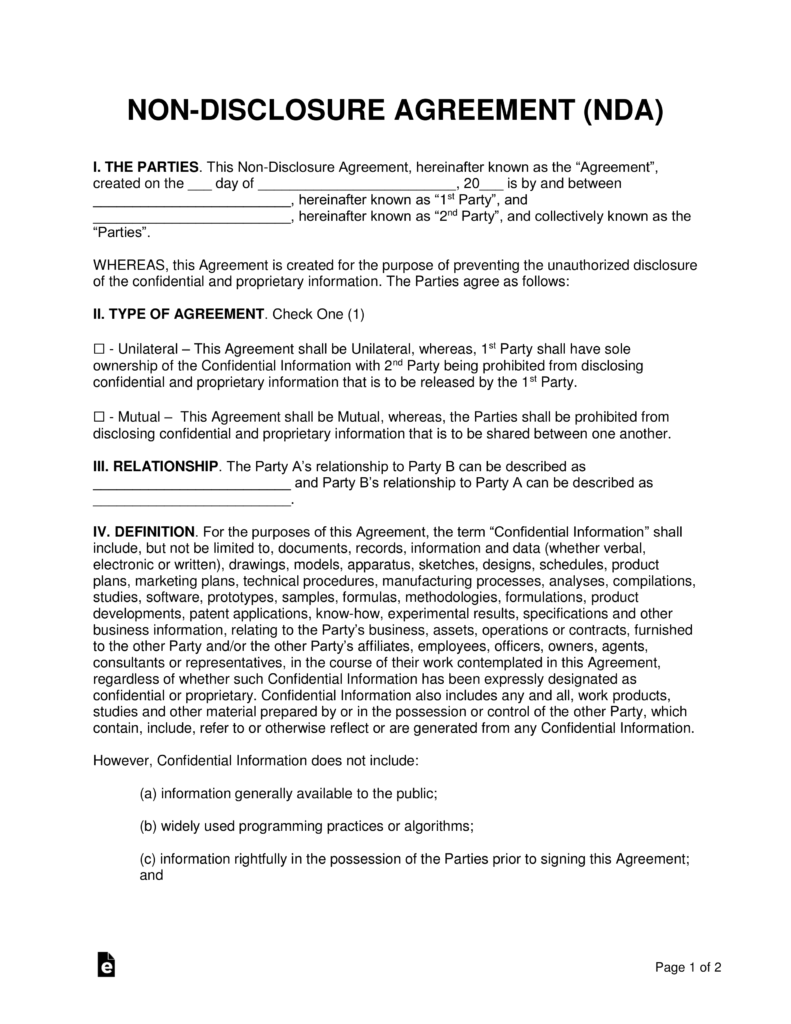Employment Contract
Employment contracts are agreements between an employer and their employee stating the rights, duties and responsibilities of both parties. It sets out the terms of the legal relationship between employee and employer.

Create a Document in 3 Easy Steps
1. Get Started
Choose Your Form or
Location to Begin
2. Answer Questions
Complete Your Free Document in Minutes
3. Download Document
Download and Print for Free
(MS Word & PDF)
This document is GDPR compliant.
Employment contracts provide vital assistance in setting the tone of your business and set out clear terms for employers and employees to follow. This contract is a straightforward and efficient means of laying out any expectations for both parties and lays the foundation for their mutually beneficial relationship. These can be used for either permanent employees, temporary employees, or fixed-term employees.
Model employee contracts should cover areas regarding: start date, probation periods, job title, main place of work, pay, working hours, pension, employee benefits, sickness/injury, holidays, , notice period, confidentiality, employer’s property, lay-off termination and restrictive covenants.
When to use employment contracts
You should use employment contracts when:
- You wish to employ a new individual, sign an updated employment contract with an existing employee or an existing employee has a new job role within your business;
- You wish to present the written employment information as required by law;
- You wish to use the employee contract to clarify the terms of employment;
- You are an employee or employer situated in England, Wales or Scotland; and
- You wish to create a fixed-term, temporary or permanent contract.
The employment contract covers
- Employment start date;
- Job title
- Agreed-upon working hours and days;
- Probation period
- Terms regarding holidays;
- Terms regarding potential sickness or injury of employees;
- What the job entails/duties of the job;
- Confidentiality;
- Employer’s property;
- Pay rates and additional benefits (for both full-time and part-time);
- Place of work/;location;
- Standard disciplinary and grievance actions/procedures;
- Arrangements for terminating employment, i.e. notice period(including for temporary jobs);
- Information regarding trade unions and pensions as required by law;
- Post-employment restrictive covenants.
What is an employment contract?
Employment contracts are written agreements between the employer and employee stating the rights, duties and responsibilities of employer and said employee.
Do I need an employment contract?
On the first day of employment, all employers are required by law to give employees written statements concerning the terms of their work. This is called a Principal Statement and must include information such as the start date, remuneration, notice pension, plus much more. These statements can be adapted to either full-time or part-time employment as aforementioned, and comply with the standardised requirements of an employment contract.
All other information, not included in the Principal Statement, must be provided to the employee within 2 months of their start date. This includes information such as pensions and grievance procedures.
All employment contracts must follow the Employment Rights Act 1996, the Employment Act 2002 and the Equality Act 2010.
Can the employee’s place of work be relocated?
As an employer, if you intend to move locations or expand into multiple locations in the future, this has to be specified in the employment contract to ensure that you have the right to move the employee to a new place of work potentially.
If one does not have this right, the employee is able to refuse to move if they desire, which can cause future legal and practical problems for the business.
In order to make the right to move employees more flexible and accepting, one usually puts a geographical limit on the distance within which the place of work may be relocated.
The employment contract allows the employer to specify within which areas employees might be expected to work.
Any amendments to the terms of employment should be set out in writing to the employee as soon as possible and within one month of the change.
Is the offer letter more important than the employment contract?
When the employer gives both an offer letter and an employment contract, it is crucial to state which document is of more importance (assuming there is a difference).
In most employment contracts it states that they are usually are prioritised over the offer letter.
Is it necessary to have a separate job description?
Having a separate job description is necessary when you want to give a more detailed description of what the job entails; it can help bring clarity, especially for mid-level to senior employees.
However, it is only necessary to refer to a separate job description if it is genuinely going to be used in practice. If not, the employment contract should contain a brief explanation of the job.
Employment contracts allow employers to either reference a separate job description if necessary or describe the duties in the contract itself.
Why are ‘probationary periods’ included?
For new employees, having a probationary period (of usually three months) is beneficial to the employer, as it allows the employer to effectively assess the employee. These typically are exclusive to new employees and it is rare to see one used on an existing employee who has signed a new contract.
The employer can decide how long they wish for the probationary period to be. When employers feel employees have not achieved satisfactory targets or have not performed adequately within the probationary period, there is an option to extend the probationary period (likely for another three months). The employer may instead choose to terminate the employment contact at the end of the probation period. However, this does not prevent employees from receiving unfair dismissal rights when they have reached an acceptable service standard. It is also important to note that all future and current employees are entitled to bring discrimination claims regardless of their length of service, if they are discriminated against on a protected ground, such as race, gender or sexuality.
Employment contracts allow for probationary periods, and for the probationary period to be further extended when necessary.
How many hours are employees required to work by law?
Employment contracts allow employers to specify regular or irregular working hours. For example, 9am to 5pm from Monday to Friday or set number of hours per week. Ensure that employees are not working more than 48 hours a week, over 17 weeks as this is the legal maximum number hours employees are allowed to work. This includes any work they may do for any other employers. This is governed by the Working Time Regulations.
If an employee is working at or near the maximum hours of work, employers may ask them if they are willing to exceed the 48-hour limit and waive the Working Time Regulations. If the employee does not agree to this, employers must take the relevant steps to ensure that the employees’ working hours stay under the 48-hour limit. It is sometimes beneficial to have this consent included within the original employment contract.
Employees also cannot work for an excess of 13 hours a day and are required to have either 24 hours consecutive rest per week or 48 hours rest per fortnight.
What is the minimum holiday entitlement required by law?
Employers are legally required to give at least 5 to 6 weeks paid holiday to all employees per year. Employees working five days per week are entitled to 28 days; this can be either inclusive or exclusive of public and bank holidays.
Employers can, if they wish, agree to a higher holiday allowance for their employees.
Part-time workers are given proportional weeks of holiday entitlement. An employee working three days per week, for example, should be entitled to up to 16.8 days’ holiday.
Are employers legally required to implement pension provisions?
All employers are obligated to provide certain employees with workplace pensions by law. This obligation is known as “automatic enrolment” (or the auto-enrolment duty), and it applies to all members of staff who are:
- Between 22 and the State Pension age
- Earning at least £10,000 per annum; and
- Working in the UK
As of April 2019, all employers are required to pay at least 3% of an employee’s salary (before tax deductions into this workplace pension). They are also required to subtract contributions of at least 5% from each eligible employees’ salary.
If an existing workplace pension scheme is in place, there is no need for these levels of pension contribution to be deducted, as the requirements of automatic enrolment would have already been fulfilled.
Should fixed-term contracts be used?
Fixed-term contracts are contracts that end on a specific date, as opposed to indefinitely. The fixed term contract states that the employment will terminate after a definitive period.
Laws are put in place to prevent fixed-term employees from being treated less favourably or discriminatorily in comparison to permanent employees, as well as protection from unfair dismissal for those who have given a sufficient length of service.
Fixed-term contracts that are replaced or renewed after four years of service are automatically converted to indefinite employment.
Our employment contracts allow employees and employers to choose fixed-term employment or indefinite periods of work.
How long are notice periods required to be?
For those who have provided two months to two years of service, the minimum notice period is one week. This one-week notice will also be applicable during the probationary period. An employer is allowed by law to not provide notice if they have done less than two months service, but this is uncommon.
Employment contracts allow for longer notice period to be specified, but employers cannot offer less than the one-week statutory minimum.
A longer notice period may be beneficial to an employer in relation to an employee who is key to their business. This is because a longer notice period allows the employer to find their replacement during the notice period and allow for business continuity.
Can employee data be transferred out of the European Economic Area (EEA)?
Employment Contracts allow employers to obtain consent from their employees to allow them to transfer personal data out of the European Economic Area.
However, this can only be done by the employer if appropriate safeguards are in place; for example, the organisation receiving said data is certified by an officially approved certification mechanism.
These safeguards should be established in the Employers’ Data Protection Policy.
Employment contracts are also called
Job contracts or Contracts of employment.

